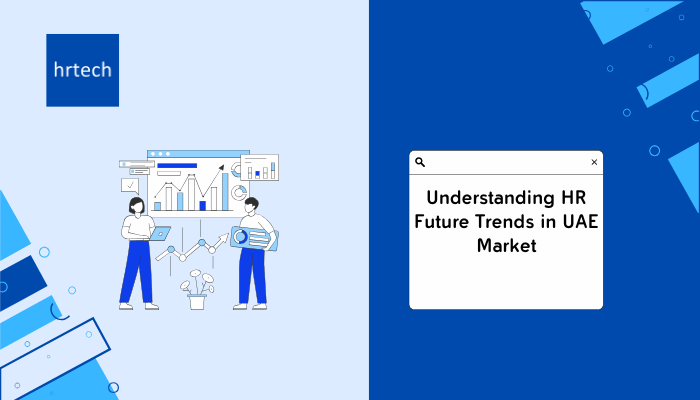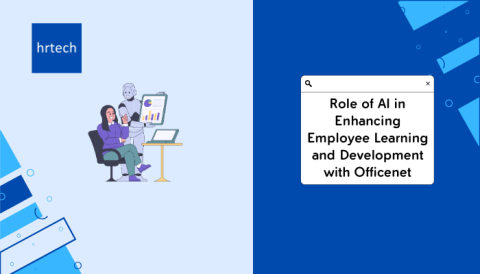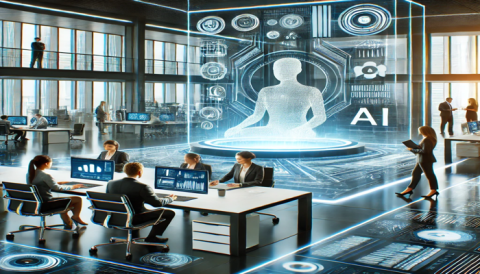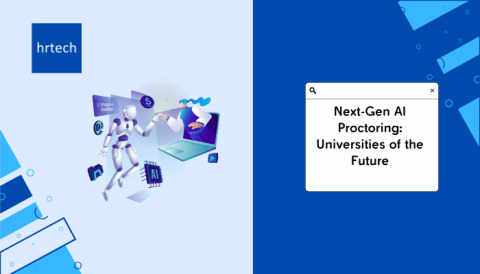The ultra-competitive, global hiring scene in the UAE is full of challenges, with the current trend in UAE pointing toward significant shifts in workforce expectations. As organizations face rapid technological advancements, cultural shifts, and global pressures, the HR function is evolving in unprecedented ways. Approximately 85% of the UAE’s labor force feels disengaged and demotivated at work.
Employees are increasingly demanding an improved candidate experience, flexible work hours, and more professional development options. To hire the best talent, companies are adopting systematic strategies to balance productivity with a thriving work culture.
As the UAE continues to develop as a global business hub, the current trend in UAE HR practices is marked by rapid change and innovation. Shaped by technology, regulatory updates, and shifting workforce expectations, HR leaders are now exploring future trends that will drive the success of organizations across the region.
What Are the Latest HR Trends in the UAE?
The Human Resources (HR) field is evolving rapidly to meet the growing need for adaptability amid turbulent workforce dynamics. Both employers and employees seek common ground, engaging with current trends in UAE HR practices to address each other’s needs effectively. Analytics are vital for understanding workforce dynamics and turnover rates, which makes resources like the HR People Analytics Book indispensable.
According to Qureos, 75% of UAE participants are actively exploring new job opportunities even while employed. This underscores the urgent need for employers to build a committed, long-term workforce by implementing effective employee retention strategies.
As a response, HR professionals are keenly aware of this trend and are taking action. By enhancing automation, applying AI solutions, and prioritizing employee well-being, HR trends are reshaping the workforce dynamic in the UAE.
As the HR field evolves, understanding the latest advancements, such as those outlined in our HR Compensation and Benefits Design Guide, can help HR leaders stay competitive
Current Trends in the UAE HR Market
The current trend in UAE HR practices reflects a rapid shift towards innovation, inclusivity, and adaptability, driven by both technological advancements and changing workforce expectations. Companies are increasingly investing in Artificial Intelligence for talent acquisition, data analytics for performance insights, and cloud-based HR systems to streamline operations.
According to the TASC corporate services, around 95% of UAE respondents shared their inclination toward new job opportunities, suggesting that more efforts are required to retain the UAE workforce.
Digital Transformation in HR Practices
Companies in the UAE are increasingly embracing digital transformation in their HR operations. This shift involves replacing traditional methods with advanced, tech-driven systems designed to optimize processes such as payroll management and performance evaluations. Understanding the importance of metrics in HR is crucial, as highlighted in our HR Analytics guide.
Such systems aim to enhance efficiency, reduce errors, and create a more reliable HR framework that supports business needs.
Rise of Remote and Hybrid Work Models
Remote and hybrid work models have seen a significant rise post-pandemic. According to research, about 98% of companies are looking into these flexible work arrangements.
Younger employees, particularly those from the Gen Z generation, favor hybrid work settings, which link directly to increased satisfaction and productivity. These flexible models address the growing desire among employees for a better work-life balance.
The demand for flexible work arrangements is now a major factor in employee retention and productivity, as seen in the rise of remote and hybrid work models.
Focus on Employee Well-Being and Mental Health Initiatives
Companies are increasingly focusing on employee well-being and mental health, with 88% investing in related programs. Prioritizing mental health initiatives and nurturing an employee-centric culture are among the top strategic goals. Senior leaders have observed that these initiatives contribute to heightened productivity and engagement levels.
Increased Emphasis on Skills Development and Lifelong Learning
To remain competitive and equipped with the necessary skills, both HR teams and employees are encouraged to participate in continuous skills development and lifelong learning initiatives. This trend aligns with the rapid technological advancements, ensuring that the workforce remains agile and competent.
Integration of AI and Automation in Recruitment and HR Processes
AI and automation are increasingly integrated into HR practices, notably in recruitment. HR departments apply AI tools to detect workforce patterns, predict employee retention, and streamline the hiring process by aiding in the development of interview questions and job descriptions. This approach allows companies to leverage data for better-informed HR decisions.
Personalized Talent Attraction and Retention Strategies
Customized strategies for talent attraction and retention are increasingly prevalent. Companies aim to meet individual employee needs by providing mentorship for new graduates and flexible options for senior staff.
Addressing employee burnout through expansive mental health resources and support systems has become critical, as a significant portion of the workforce reports experiencing burnout symptoms.
These trends highlight the UAE’s shift toward a more flexible, technology-focused, and employee-centric HR environment.
Impact of Technology on HR Trends
The current trend in UAE highlights a growing reliance on technology within HR, as companies integrate advanced tools to enhance talent acquisition, employee management, and overall business efficiency.
According to The National News 53% of senior leaders reported significant improvements in productivity after adopting well-being initiatives. Technology is transforming HR practices, making them more strategic, efficient, and responsive to changing workforce needs. With the rise of Artificial Intelligence, HR analytics, cloud-based solutions, and virtual reality, companies can better meet employee expectations and drive performance.
Platforms like hrtech marketplaces are central to this transformation, providing access to a range of innovative tools and solutions for modern HR challenges. These marketplaces enable HR teams to discover and integrate the latest technologies, ensuring they stay competitive and aligned with the evolving demands of the workforce.
Role of Artificial Intelligence in Talent Acquisition and Management
AI is revolutionizing the hiring process by streamlining candidate screening, automating repetitive tasks, and enhancing decision-making. From resume screening to predictive analytics, AI enables HR teams to find the best candidates faster and improve talent retention strategies.
Utilization of HR Analytics for Data-Driven Decision Making
With HR analytics, organizations can leverage data to make informed decisions on recruitment, performance, and employee engagement. Analytics help identify patterns, assess productivity, and forecast workforce needs, allowing HR teams to customized their strategies based on real-time insights.
Cloud-Based HR Systems and Their Impact on Business Efficiency
Cloud-based HR platforms simplify administrative tasks, making it easy for HR teams to manage payroll services, benefits, and employee records from a centralized system. This accessibility improves operational efficiency, reduces paperwork, and allows HR to focus more on strategic initiatives.
Emergence of Virtual Reality for Employee Training and Development
VR is opening new possibilities in employee training by providing immersive, hands-on experiences that improve learning outcomes. From simulated scenarios to safety training, VR enables employees to practice skills in a controlled environment, enhancing both skill retention and engagement.
Together, these technological advancements are setting new standards in HR practices, helping companies meet the demands of a modern workforce in the UAE.
Evolving Workforce Demographics and Expectations
The current trend in UAE workplaces reflects the shifting demographics and evolving expectations of a diverse and dynamic workforce. With Millennials and Gen Z now comprising a significant portion of the workforce, their influence on workplace culture is reshaping HR practices to meet their values and expectations.
This new generation brings a focus on meaningful work, technological integration, and work-life balance, encouraging employers to foster a culture that emphasizes purpose, innovation, and flexibility.
Influence of Millennials and Gen Z on Workplace Culture
Millennials and Gen Z are setting new standards for workplace culture, emphasizing collaboration, transparency, and social impact. Their preference for open communication and a sense of belonging has led organizations to create more inclusive, team-oriented environments that align with their values.
Growing Importance of Diversity and Inclusion Initiatives
With a diverse talent pool, the UAE is experiencing a heightened focus on diversity and inclusion. Companies are recognizing that a varied workforce strengthens innovation and business performance, driving HR to develop programs that promote equality, cultural awareness, and a respectful workplace for all backgrounds.
Adaptation to Flexible Work Environments
Flexibility is no longer a perk but an expectation, particularly for Millennials and Gen Z. Remote and hybrid work options are becoming standard, allowing employees to balance their professional and personal lives.
According to Rcademy around 50% of job applicants in Dubai and Abu Dhabi reported that their productivity stayed the same or even increased while working remotely. In response, HR teams are restructuring roles and policies to support flexible work arrangements that boost employee satisfaction and productivity.
Challenges in Managing a Multi-Generational Workforce
With Baby Boomers, Gen X, Millennials, and Gen Z working together, HR professionals face unique challenges in catering to varying work styles and preferences. Older employees may prioritize stability and traditional benefits, while younger workers value flexibility and career growth. To manage these diverse needs, HR teams are crafting multi-generational strategies that recognize each group’s strengths while fostering a cohesive and collaborative workplace.
This evolving demographic landscape in the UAE is prompting companies to rethink their approach to workforce management, creating a workplace that respects generational diversity while aligning with modern expectations.
Regulatory and Policy Changes Affecting HR
The current trend in UAE is seeing significant regulatory and policy shifts that are reshaping HR practices across the region. Recent labor law reforms emphasize flexibility, equality, and employee rights, making it essential for HR professionals to update their policies to remain compliant and supportive of these new standards.
1. Understanding the UAE Labor Law Reforms
Recent labor law reforms in the UAE are transforming how businesses manage their workforces, with a focus on creating a fair and balanced workplace. These reforms address critical areas such as flexible work arrangements, parental leave, equal opportunities, and protection against discrimination.
For HR professionals, these changes necessitate a deep understanding of the legal requirements to incorporate them into company policies effectively.
2. Impact of Nationalization Policies on HR Practices
Nationalization policies, particularly Emiratization, are driving significant changes in HR practices within the UAE. These policies are designed to increase the employment rate of UAE nationals in private sector roles, aiming to build a more balanced and sustainable workforce.
HR departments are now tasked with designing strategies that support the hiring and development of UAE nationals. This can involve creating dedicated training programs, career development pathways, and incentives to attract and retain Emirati talent.
3. Legal Challenges and Compliance in a Changing HR Landscape
As HR policies evolve, so too do the legal complexities surrounding them. HR teams must be vigilant in navigating a landscape where labor laws are frequently updated, especially with the introduction of policies promoting equality, flexible working, and data protection. Each of these changes brings its own set of compliance requirements and potential legal challenges.
For instance, ensuring employee data protection in line with new privacy laws can be complex and require specialized knowledge. Non-compliance with updated regulations can result in fines or other penalties, making it crucial for HR professionals to stay well-informed and adapt quickly.
4. Role of Government Initiatives in Shaping HR Trends
Government initiatives are instrumental in guiding HR trends in the UAE, particularly in areas like employee well-being, digital transformation, and professional development. Programs promoting employee well-being encourage companies to adopt policies focused on mental health, work-life balance, and employee happiness, which are essential for attracting and retaining talent.
Additionally, the government’s push toward digital transformation is inspiring organizations to incorporate more technology-driven HR solutions, such as AI and data analytics, to enhance recruitment, training, and productivity.
Future Skill Requirements in the UAE Market
Although the region is making impressive strides in technology and practical applications, there is still progress to be made before the system reaches full optimization. To keep up with the current trend in UAE, HR practices must continuously evolve to support the region’s fast-growing economy, expanding population, and rising job demands.
| Future Skill Requirements in the UAE Market | Description |
| Demand for digital and technological skills | With the current trend in UAE, there is a high demand for skills in digital tools, AI, and automation. |
| Importance of soft skills and emotional intelligence | As workplaces become more collaborative, soft skills and emotional intelligence are increasingly valued. |
| Cross-functional skills and their relevance | Skills that allow employees to work across different functions are crucial for flexibility and innovation. |
| Strategies for upskilling and reskilling the workforce | Companies are focusing on continuous learning initiatives to adapt to evolving market demands. |
Challenges and Opportunities in Future HR Trends
The balance between technological advancements and maintaining a human-centric approach poses both challenges and opportunities. Organizations in the UAE are navigating these changes by embracing innovation while ensuring core human values are preserved.
Balancing Technological Advancements with Human-Centric Approaches
Technology should enhance, not substitute, human interactions in HR. Technologies such as AI and HR software should serve as tools that enhance the workplace experience, offering support for personalized talent attraction and retention.
Flexible working conditions and mentorship opportunities are increasingly popular approaches that use technology to enrich human experiences.
Addressing Cybersecurity Concerns in Digital HR Systems
The introduction of new technologies brings with it pressing cybersecurity challenges. Protecting sensitive employee data through robust security measures is crucial. Organizations must adhere to labor laws and educate employees on best practices in cybersecurity.
Ensuring the security protocols of third-party vendors are thoroughly vetted is also vital in mitigating risks.
Opportunities for Innovation and Creativity in HR
The integration of AI and automation opens new doors for data-driven decision-making in employee retention and engagement. More prevalent hybrid work environments offer increased flexibility and productivity opportunities. Tools such as predictive analytics and virtual reality training are modernizing the approach to talent management and skill development.
Strategies to Overcome Resistance to Change
Introducing new technologies often meets with resistance. Clear communication and transparency are key to easing this transition. Offering flexible work arrangements and implementing training programs that upskill employees can alleviate fears.
Additionally, identifying change champions within the organization to lead these initiatives helps drive acceptance of new methods and technologies.
Fostering adaptability and innovation may necessitate a cultural shift. It is essential to collaborate with educational institutions and technology providers to foster best practices in HR strategies. Upholding ethical considerations in AI usage ensures that technology supports transparent and equitable HR processes.
Conclusion
The current trend in UAE HR practices highlights the need for organizations to stay agile and responsive to a rapidly evolving workforce landscape. Key trends, including the integration of AI in talent acquisition, the adoption of flexible work arrangements, a heightened focus on diversity and inclusion, and the impact of nationalization policies, are shaping a forward-thinking approach in HR. These trends indicate that companies must prioritize employee engagement, digital transformation, and a resilient workforce strategy to remain competitive in a dynamic market.
Strategic HR management plays a critical role in future-proofing organizations by aligning talent management with business goals and navigating regulatory requirements. By adopting a proactive stance, HR leaders can create policies that support not only immediate needs but also long-term resilience.
There is also significant scope for further research and development in HR practices in the UAE, particularly in areas such as AI-driven employee engagement tools, virtual reality training programs, and advanced analytics for predictive workforce planning. Exploring these areas can provide HR teams with deeper insights and more effective tools for talent management in a competitive market.
Finally, HR professionals are encouraged to stay proactive, adapting to emerging trends and fostering a culture of innovation and inclusivity within their organizations. Leveraging resources like those available on the hrtech contact us page can provide valuable insights, tools, and support for implementing the latest in HR technology and best practices.





